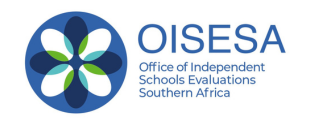For the latest update and download on the Novel Coronavirus, please click here.
12 FEBRUARY 2020
On 1 December 2019, Chinese Health Authorities were alerted to a cluster of pneumonia cases with unknown aetiology∗. A few weeks later, between 31 December 2019 and 7 January 2020, Chinese Health Authorities indicated that a Novel Coronavirus (2019-nCoV) was identified as the causative virus.
What is a Coronavirus?
Coronaviruses are a large group of viruses that are common among animals. In rare cases, they are what scientists call Zoonotic. Zoonotic diseases are infectious diseases caused by bacteria, viruses and parasites that are transmitted from animals to humans. In cases of infection, some humans are known to have illness ranging from the common cold to more severe diseases such as Middle East Respiratory Syndrome (MERS) and Severe Acute Respiratory Syndrome (SARS).1
What is a Novel Coronavirus?
Novel Coronavirus (2019-nCoV) is a new or “Novel” strain of coronavirus that has not been previously identified in humans. There is currently no vaccine for the Novel Coronavirus.
How does the Novel Coronavirus spread?
The Novel Coronavirus is a respiratory virus which spreads primarily via contact with an infected person through respiratory droplets generated when a person, for example, coughs or sneezes, or through droplets of saliva or discharge from the nose.
As a result, it is important that everyone practice good respiratory hygiene. For example, sneeze or cough into a flexed elbow, or use a tissue and discard it immediately into a closed bin. It is also very important for people to wash their hands regularly with either alcohol-based hand sanitiser or soap and water.
∗ The cause, set of causes, or manner of causation of a disease or condition. 1 https://www.who.int/news-room/q-a-detail/q-a-coronaviruses.
Executive Director: Lebogang Montjane
Executive Committee: G Forsman (Chair) G Brown D Geral D M Hunter L Montjane B Heidmann M Boden N Khoele A Jammine
NPC Reg. No. 1999/019655/08 • PBO Reg. No. 9300 00674
What are the symptoms of Novel Coronavirus?2
The symptoms are usually a mild to moderate upper respiratory tract illness, a runny nose, cough, sore throat, possibly a headache and maybe a fever, similar to a common cold. These symptoms are said to last for a couple of days.
Persons with a weakened immune system could suffer more serious respiratory tract illnesses such as pneumonia or bronchitis. In contrast, MERS and SARS have much more drastic and fatal consequences for those who are infected. Three to four out of every 10 patients infected with MERS died, according to the Centre for Disease Control and Prevention. With SARS the death rate has been reported to range anywhere from 0 to 50% of the cases reported.
The Novel Coronavirus is currently believed to be much less severe than SARS and MERS. Its symptoms have also been reported to have a longer onset. Infected patients have typically experienced a mild cough for a week, followed by shortness of breath causing them to visit a hospital. It is further reported that, so far, around 15 to 20% of cases have become severe, requiring patients to be isolated in hospitals.
When should one be tested for 2019-nCoV?3
You should contact your doctor by phone for advice if you have:
• an acute respiratory infection (sudden onset of either a cough, and/or a sore throat, and/or shortness of breath) and in the 14 days before the start of your symptoms, you were either:
o in close contact with a confirmed or probable case of 2019-nCoV infection, or travelled to an area where there is ongoing community transmission of 2019-nCoV, or
o worked in or attended a healthcare facility where patients with 2019-nCoV infections were being treated.
Who can be infected by the Novel Coronavirus?4
If you reside in or have travelled to an area where the 2019-nCoV virus is circulating, you may be at risk of infection. At present, 2019-nCoV is circulating in China and most of the cases of infection have been reported in China. Those at risk include family members of people who have returned from China or other countries were reports of infection have been confirmed.
Persons also at risk are those family members, co-workers or medical professionals caring for a patient before they knew the patient was infected with 2019-nCoV, as well as health workers caring for persons who are sick with 2019-nCoV.
Is there treatment for the Novel Coronavirus?
There is currently no vaccine or specific treatment, generally symptoms will subside on their own. Doctors can help relieve symptoms by prescribing a pain or fever medication. Keeping hydrated is highly advised as well as getting rest and as much sleep as possible.
2 https://www.who.int/news-room/q-a-detail/q-a-coronaviruses
3 https://www.ecdc.europa.eu/en/novel-coronavirus-china/questions-answers
4 https://www.who.int/news-room/q-a-detail/q-a-coronaviruses
How can you can protect yourself from infection?5
- Wash your hands frequently with soap or use an alcohol-based hand sanitiser.
- Maintain social distancing – maintain at least 1 metre (3 feet) distance between yourself and other people, particularly those who are coughing, sneezing and have a fever.
- Avoid touching eyes, nose and mouth.
- If you have fever, cough and difficulty breathing, seek medical care early. Inform your health care provider if you have travelled in an area in China where 2019-nCoV has been reported, or if you have been in close contact with someone who has travelled from China and has respiratory symptoms.
-
If you have mild respiratory symptoms and no travel history to or within China, carefully practice
basic respiratory and hand hygiene and stay home until you have recovered.
What does this mean for independent schools?
- Stay informed on the status of the Novel Coronavirus, the affected areas and identification of symptoms.
- If you have been travelling in an affected area and are showing symptoms, see a doctor immediately.
- Avoid travelling to affected areas.
- Practice good hygiene as advised above: for example, sneeze or cough into a flexed elbow, or use a tissue and discard it immediately into a closed bin. It is also very important for people to wash their hands regularly with either alcohol-based hand sanitiser or soap and water. For more information on the novel coronavirus please contact the ISASA Office: Confidence Dikgole – Director: Policy and Government Relations at confidenced@isasa.org or Nhlamulo Mvelase – Policy Analyst at nhlamulom@isasa.org.
5 https://www.ecdc.europa.eu/en/novel-coronavirus-china/questions-answers





